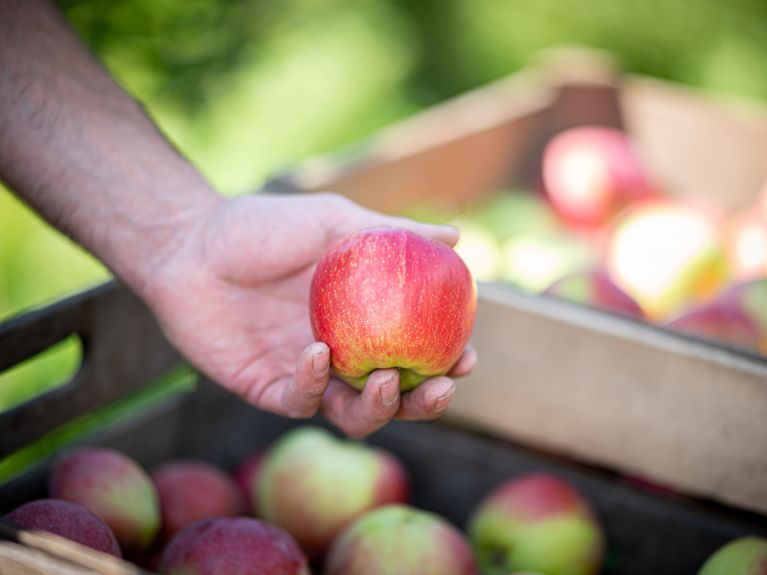"Appreciating Food"
Tonnes of food still end up in the garbage. Simone Welte from the German organization Welthungerhilfe explains how this might change.

Ms Welte, what is the extent of food waste worldwide and in Germany?
In Germany, we estimate that 75 kilograms of food are wasted per capita every year. Worldwide, food waste is estimated at 1.3 billion tonnes. In this context, we must always bear in mind, for example, that it's not just an apple that is thrown away – because water and perhaps pesticides were used in its production, and the apple was cooled and transported. There's a lot of CO2 in there too, which is why food waste also plays a major role in climate change.
What could be achieved by wasting less food?
Halving the amount of wastage would certainly save an immense amount of CO2 emissions. CO2 is the driver of climate change – and it is people in developing countries who suffer the most. There, for example, droughts or floods destroy entire harvests. Or farming becomes completely impossible.
What mostly ends up in the garbage at the moment?
Fruits and vegetables account for the largest share of more than 30 percent. But a lot of food is also thrown away because too much has been cooked, or food is left over in restaurants. Dairy products only account for about ten percent. It is now accepted by many people that yoghurt can usually still be eaten a week or more after the best-before date has expired.
How can food waste be reduced?
It really is true that households throw away the most. That is why that is the best place to start. For example, we have been conditioned for years to accept only beautiful and perfect food. But we should believe more in what we can smell, see and taste. Anyone who has ever cracked open a rotten egg knows what it smells like. We need a better appreciation of food. After all, it's also money that's going into the bin.
You would like to receive regular information about Germany? Subscribe here:


